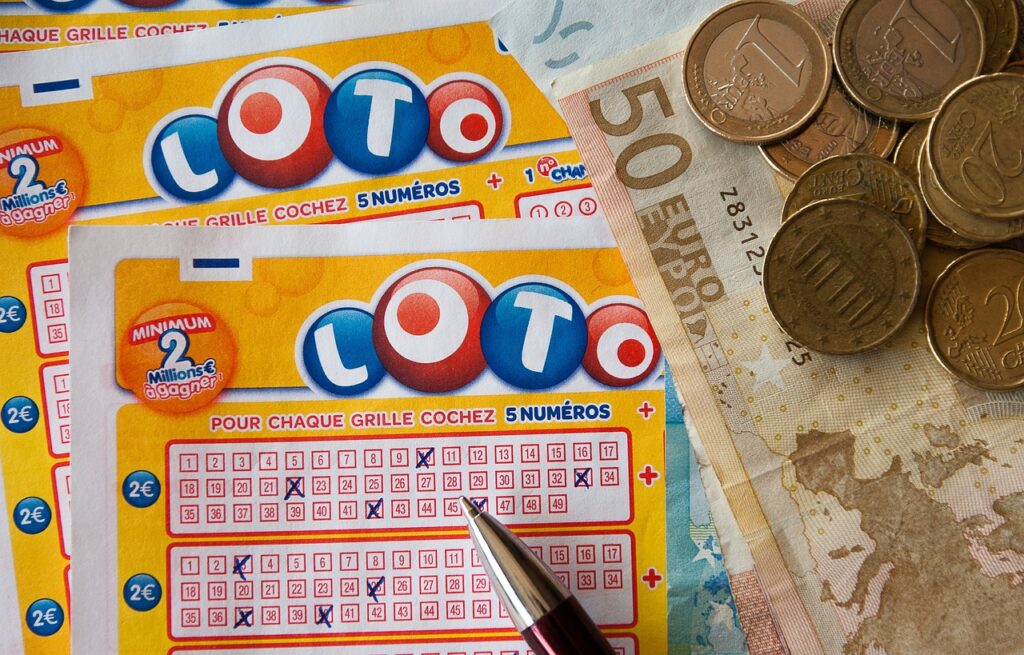I think there is.
Under-pricing in search of multiple offers and a potential bidding war is a time-tested technique, but sellers need to be careful not to turn buyers away with a silly list price…

New day, same old strategy.
Your house is “worth” around $600,000, right?
Well don’t price it at $600,000, or even $599,999, which in itself is a strategy invented by those Madison Avenue geniuses a hundred years ago.
Price it at $549,900, and hold back offers! Get everybody to the table at once, and see who among the group will pay $635,000 for your $600,000 house!
It’s been done before, and then again. Over and over for a decade. We all know the drill.
The real estate bears will have a field day with this post, as they have with every one like it, but multiple offers are a way of life in the Toronto market, and when it comes to single-family homes, I don’t foresee a day when the best houses cease to command interest from multiple parties.
But a new trend is on the horizon, one that has helped many buyers to actually benefit in this crazy market!
It’s called “pricing too, too low,” and it’s completely backfired on the sellers that should have never entered the fray in the first place.
Here’s the logic:
There are many buyers, perhaps most buyers, who wouldn’t get involved with a listing if the property is listed at $1. No matter if that property is worth $400,000, or $1,000,000, nobody wants to get involved in that “mess.”
That’s the best word to describe it – a mess. I’ve heard it been called a “melee” as well, or more accurately, a “game.”
When a seller prices at $1.00, you know a few things for certain:
1) They’re either exceptionally strategic, or completely irrational and illogical.
2) They’ve likely tried to sell the property before with a more conservative approach.
3) They don’t want to play by anything resembling “typical” rules.
4) They’re unstable, and could blow up the whole process at a moment’s notice.
The last point, in my opinion, is probably the most worrysome.
What’s to stop these people, having listed at $1.00, from getting a dozen offers, taking none of them, and then relisting the property tomorrow at $799,000, or whatever is the equivalent of 115% of fair market value? Nothing, really.
So let’s split the difference here; forget about $1.00 listings, and forget about pricing at fair market value, or slightly below to try and entice multiple offers.
Let’s look at where under-pricing goes wrong, by under-pricing too much.
A lot of people will say, “Selling real estate in this market is easy, just under-price, set an offer date, and get more than fair market value.” But it’s not that simple.
Take the case of a house that is worth, say, $600,000, or maybe $615,000. What should you list that house at in order to get the most action?
It’s not $1.00, and it’s not $600,000.
Is it $549,000? I’d probably say, “Yes.”
But what if that house were listed at $489,900? Then what?
Should you expect MORE interest, given that there would be a ton of interest at $549,000?
Some people think so. Some people think, ‘The lower the price, the more of the buyer pool that see the listing, and the more people that will make an offer!”
But at what point is the price so low that it will scare away buyers?
At what price will buyers see little to no difference between the list price and a list price of $1.00?
I recently ran into this situation with an east-end house, as described above.
A $600,000++ house was listed at $489,900, probably because the listing agent and seller figured, “The lower the better!”
We saw every penny of $600,000, but figured it was worth more. A colleague of mine took her own clients through and said, “That’ll be a gong-show on offer night. I’m thinking $650-plus.”
We planned for the worst, hoped for the best, and drew our line in the sand. We’d go to $605,000, but that was it.
On the day of offers, I was surprised to know that my offer was the first one registered, at about 10:00am.
But 2pm, there was only one other offer.
And by 7:00pm when offers were presented, it was just the three of us.
I was shocked, as were my clients, and my colleagues with whom I discussed the house all day.
At $489,900, we wouldn’t have been surprised to see 10-12 offers. At that price? For that house? How could there not be?
My colleague who quoted the $650,000 valuation said it best, “Nobody wants to play ball.”
And she’s right.
Buyer after buyer went through that house, looked at the laughable $489,900 list price, and said, “This is so insanely under-priced, it’s going to be a giant mess on offer night. Count me OUT!”
And with only two offers competing with us, we offered $570,000, and got the house by a hair.
Of course, we don’t know the other two offer prices, but in a private conversation, the listing agent said, “All three were over $550K, and all three were really close.”
All three buyers probably thought the same thing: “Why is there such little action on this house?”
The answer:it was priced too low.
What does it say about the property that it only received three offers? A cynic will say, “Maybe it’s not nearly as valuable or popular as you think it is.” But I don’t think that’s the case. What if this property had 50 showings? What if it had 100 people through a weekend open house? Then what do you make of it?
In a buyer’s mind, the $489,900 list price was too low to make any sense of, and it may as well have been listed at $200,000, or $1.00. Buyers assumed that the sellers were looking for an all-out bidding war, and I’d have likely agreed.
In the end, my buyers and I were ready for every situation, except the one that happened. We never, in our wildest dreams, thought there’d be only two competing offers for a house that was priced about $150K under market value.
We lucked out, plain and simple, and as I told my buyers, “This is an opportunity to pay less for the house than you were prepared to pay yesterday when you assumed there’d be 10-12 offers. You do NOT need to offer your max price.” In the end, I don’t imagine we got the property by more than a few thousand dollars. We were willing to risk losing the property in order to potentially save $30K from what we identified as our “max price.”
I heard from a few colleagues who asked, “How did that house only sell for $570,000? I thought it would go way, way over $600!”
So did I, so did my clients, and so too did the seller and the agents.
But the house was priced too low, and it scared buyers off.
Many buyers out there in today’s market don’t want to play games, and this looked like it would be more of a tournament!
There’s a fine line between “strategic pricing” and “scaring people away.”
Who knows, maybe one day we’ll return to a market where (gulp!) houses are actually priced at fair market value, with offers any time!
Wouldn’t that be something?































jon
at 9:27 am
Any price other than a fair market price is playing games. Doesn’t matter if it’s 50 or 100k plus under. Agents get cocky when the market plays in their favor. It wasn’t long ago (november-decemeber) when agents were panicking over market conditions. It won’t take much to turn this market upside down. Hopefully, once these desperate buyers have over paid, things can be more level. With that said, it may be a long wait till that happens.
Joe Q.
at 9:30 am
On the other hand, the seller could have just walked away from all the offers and re-listed at a more reasonably price later. That he or she accepted the $570k offer suggests that something else might have been at play (desperation, incompetent LA, unknown issues with the house, etc.)
On a related note, I don’t think it’s the idea of multiple offers that RE bears are troubled by, but more the way that they’re handled.
Geoff
at 10:40 am
@ Jon – isn’t fair market price what every house sells at, in the end?
In our case, back in the dark ages of 2007, my wife and I were looking at houses in the $450 – $500 range in Don Mills and finding nothing. Then I saw this house that seemed listed impossibly low – $409 – and yes there was a bidding war with 6 other couples, and we “won” it with $451500. Although I was sick to spend this much money, I never once questioned that I probably would have paid $452,000 if the listing price was $452000. In talking with the seller, I got the feeling they were never that comfortable with listing the price so low and trusting their agent’s prediction of a bidding war more than making up the difference. But guess I’ll never know.
AsianSensation
at 10:48 am
Agreed.
If a buyer wants to bid up a house, let them. That’s what capitali$m is about and isn’t that you pay your realtor for anyways? If all homes were treated equally and prices were fixed, real estate would become a mere commodity.
Ralph Cramdown
at 11:00 am
If every house sold at fair market value, wouldn’t staging be a complete waste of money?
jon
at 11:29 am
I have no issue with a house going over asking. What I do have an issue with is underpricing. It’s a game agents use to play with people’s emotions.
AsianSensation
at 3:39 pm
Game??? Every advertiser uses emotion to peddle their products! Why should real estate be any different?
Next thing you know stagers will have puppy’s and cookies in the oven at every open house just to pull at the heart strings a little more.
Joe Q.
at 4:19 pm
Real estate is qualitatively different in this case because the under-pricing is designed to maximize the chances of changing the sale from a one-on-one negotiation into an auction.
jeff316
at 9:34 am
No, the qualitative difference for real estate (save for pre-con) is that there is no exact replica of the product available for the next consumer. This makes every offer of sale is effectively a negotiation, it’s just that some only have one interested consumer which increases their leverage. Under-pricing may facilitate interest, but ultimately it’s the uniqueness of each property that drives the auctions.
George
at 10:54 am
This post is right on point. And it happens in other marketplaces, too. Flight prices excluding the taxes, 0% financing on cars, and 90% off sales in department stores cause the “Too good to be true!” reaction from many potential buyers.
Gypsy
at 11:14 am
In case if you are interested in the kind of hair cut multimillion dollar west Vancouver homes received last month, please take a look. I don’t think Toronto is far away.
http://www.yattermatters.com/2013/02/hair-cut/#more-33274
n
Greg
at 3:05 pm
Why would you care about how much of a hair cut these multimillion dollar homes suffer? Even with a 90% crash like you and all your basement dwellers think happening out there, it is still out of reach for you. I also hope for the Toronto market to crash so i can snatch up some more investment properties, but so far this “bubble” is not in any way showing signs of deflatin. Good luck, buddy. Garth The Greater Fool Turner won’t be posting a new entry tonight as he takes a day off a week so i hope you will find something else meaningful and enjoyable to do.
Gypsy
at 3:48 pm
Why would you assume that I live in the basement or I couldn’t afford to buy a million dollar home. I wish we had an agent of this caliber here in Toronto, to tell things like it is instead of cheerleading what is hot at the moment. It was 500 – 700 grand homes last month. Why don’t we get a write up on stagnating Toronto condo sales?
David Fleming
at 3:52 pm
@ Gypsy
My whole brand is “telling it like it is.”
If you don’t think that I’m “telling it like it is,” then please don’t ever waste your time reading my blog again.
Mikaroo
at 8:20 pm
As a fan of both blogs, I appreciate that DF gives us the ‘daily beat’ of what’s happening in TO real estate. GT is mostly pointing out trends in a scale of 3-5 years so people can plan their finances/purchasing decisions appropriately. Neither one expects the nice ‘hoods to crash; but GT is warning that the McMansions sprouting up like mushrooms in the 905 are not likely to hold their current valuations for long.
Dave
at 8:25 pm
David, is there any thought to people who purposefully underprice their house (generating multiple unconditional offers) because if they priced their house at market value, it would come with a home inspection clause…that would ultimately scuttle the deal?
Geoff
at 2:39 pm
@ Dave – I think few people are that afraid their home won’t pass a home inspection. Let’s face it, most home inspections aren’t that thorough, and if it’s so bad it fails the test, the seller would be best to declare it (or fix it). And in any case, home inspectors don’t give a pass/fail, they just tell the homeowner.
@ ralph – every house does sell at fair market value. It makes sense to me that a house that’s well presented will sell for more than a house that’s poorly presented. Just as a car that’s had a car wash will probably sell for more the same car that’s got 5 years of dirt baked on it. And as someone noted, houses (except preconstruction) aren’t products – when buying houses, you’re looking at different streets, different parts of the street (that matters), different school districts, etc – it’s rare that two identical houses side by side would ever go up on the market.
jeff316
at 8:16 am
The real risk of pricing too low is not scaring off peopel afraid of bidding wars, but making prospective buyers think “This is so cheap, what is really wrong with this house???”